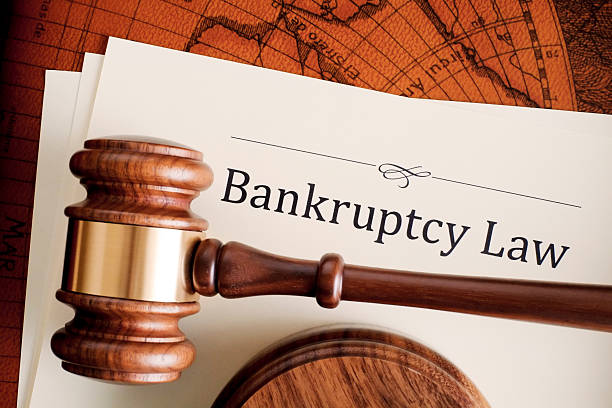The Role of Bankruptcy Trusts in Asbestos Claims
What Are Asbestos Bankruptcy Trusts? An asbestos trust fund claim is a financial entity established by companies that once manufactured or used asbestos products.
When faced with the overwhelming number of asbestos lawsuit, many companies filed for bankruptcy protection. The purpose of these trusts is to compensate victims of asbestos exposure who were harmed by the companies’ negligence.
According to Independent Trustees, which manages the remaining funds, approximately 60 companies involved in the production or use of asbestos have filed for bankruptcy, creating trust funds to settle claims from asbestos plaintiffs.
These trust funds hold billions of dollars in assets, which are used to pay asbestos trust fund payouts to claimants. Over the years, these funds have paid out billions in claims and continue to provide financial compensation to victims of asbestos exposure.
Independent trustees manage the remaining funds to ensure fairness and transparency in the distribution process.
Why Do Asbestos Companies File for Bankruptcy?

The bankruptcy filings are primarily due to the financial burden of an overwhelming number of mesothelioma lawsuits filed by workers who developed asbestos-related diseases.
According to the Centers for Disease Control and Prevention (CDC), more than 45,000 people in the U.S. die each year from asbestos-related diseases, with mesothelioma being one of the most common diseases caused by asbestos exposure.
Between the 1940s and 1980s, asbestos was commonly used in construction materials, insulation, and automotive parts, making blue-collar workers, factory workers, construction workers, and other industrial laborers the most vulnerable to exposure.
Bankruptcy protection allowed these companies to manage their asbestos liabilities and establish asbestos bankruptcy trusts to compensate victims.
These companies’ legal action to file for bankruptcy allowed them to limit their financial distress while still setting up a system to compensate asbestos claimants.
Why Asbestos Bankruptcy Doesn’t End Legal Accountability
Asbestos companies can still be held accountable despite filing for bankruptcy, asbestos companies are not absolved of their responsibility for exposing workers to asbestos.
Under U.S. law, specifically Chapter 11 bankruptcy proceedings, companies that were responsible for asbestos exposure are required to create asbestos bankruptcy trusts to compensate victims.
According to the Asbestos Disease Awareness Organization (ADAO), these trusts have paid out over $18 billion in compensation to victims as of 2019, highlighting their importance in providing justice for individuals affected by asbestos-related diseases.
The U.S. Judicial Panel on Multidistrict Litigation has confirmed that asbestos companies can still be held accountable for asbestos-related harm even after they declare bankruptcy, as long as they have established a trust to address future asbestos claims.
These trusts continue to file claims and ensure compensation for victims who have been diagnosed with asbestos-related diseases such as mesothelioma and lung cancer.
How Trusts Ensure Fair Compensation
Asbestos bankruptcy trusts are structured to provide fair compensation to victims through a detailed claims process. These trusts operate with strict oversight to ensure transparency and equitable distribution of funds.
Trustees are responsible for individual review, verifying the risks of asbestos exposure, and distributing funds based on the disease’s severity and exposure level.
In some cases, trust fund payouts can range from a few thousand dollars to several hundred thousand dollars, depending on the details of each claim.
The American Cancer Society has stated that the amount a claimant receives from mesothelioma trust funds is influenced by various factors, including the type of disease diagnosed, the level of exposure to asbestos, and the specific asbestos company involved in the exposure.
Taking Action: How to Seek Compensation

Steps To File A Claim With An Asbestos Bankruptcy Trust
Filing a claim with an asbestos bankruptcy trust can provide financial compensation for victims of asbestos exposure. Here are the essential steps:
- Determine Eligibility: To qualify for asbestos trust fund compensation, future claimants must show they were exposed to asbestos by a bankrupt company and have been diagnosed with an asbestos-related disease such as mesothelioma or lung cancer.
- Gather Documentation: Claimants need to gather medical records, work history, and evidence of asbestos exposure. This may include employer records, job descriptions, or information about the dangers of asbestos products in their workplace.
- Submit the Claim: Once all the documentation is gathered, claimants can submit their claims to the relevant asbestos trust fund. Trusts review the claims and determine the appropriate compensation.
- Receive Compensation: Once the asbestos trust claim is processed, the claimant will be awarded compensation based on the evidence provided.
The Importance Of Working With Mesothelioma Attorneys
Filing a claim with an asbestos bankruptcy trust can be complex. Many victims choose to work with experienced asbestos lawyers to ensure their claim is filed correctly.
Legal experts specializing in asbestos claims have in-depth knowledge of the process and can help victims gather the necessary documentation and maximize compensation.
If you or a loved one has been diagnosed with an asbestos-related disease, it is essential to act promptly.
Although the statute of limitations for filing asbestos claims is generally two years, some states offer extensions, allowing mesothelioma patients to file even after the standard period has expired.
Contact our team of experienced attorneys for a legal consultation. We will assess your eligibility for compensation from the asbestos trust.
Asbestos Exposure Companies
-
- A-Best Products
-
- A. P. Green Industries
-
- A.B.B. Global Inc.
-
- A & I Corporation
-
- ACandS, Inc.
-
- API, Inc.
-
- Armstrong World Industries
-
- ARTRA Group, Inc.
-
- Asarco, Inc.
-
- Asbestos Claims Management Corp./National Gypsum Company
-
- Babcock & Wilcox Company
-
- Bondex
-
- Burns & Roe Enterprises, Inc.
-
- C.E. Thurston & Sons
-
- Celotex Corporation/Carey Canada, Inc.
-
- Combustion Engineering
-
- Congoleum Corporation
-
- DII Industries, LLC (Dresser Industries)
-
- Eagle-Picher Corporation
-
- EJ Bartells Co., Inc.
-
- Federal Mogul Corp.
-
- Ferodo
-
- Flexitallic
-
- Flintkote Co./Flintkote Mines Ltd.
-
- General Motors
-
- G-I Holdings
-
- Hercules Chemical
-
- H. K. Porter Co., Inc.
-
- J. T. Thorpe (C.D. Cal.)
-
- J. T. Thorpe (S.D. Tex.)
-
- Johns-Manville Corporation/Philadelphia Asbestos Corp. (Pacor)
-
- Kaiser Aluminum Corp.
-
- Keene Corp.
-
- Kentile
-
- Leslie Controls
-
- MacArthur Co./Western Asbestos Company
-
- North American Refractories Co. (NARCO)
-
- Owens Corning
-
- Owens Corning/Fibreboard Corp.
-
- Pittsburgh Corning
-
- Plant Insulation Company
-
- Plibrico Co.
-
- Porter-Hayden Co.
-
- Quigley Co.
-
- Raymark Corp./Raytech Corp.
-
- Shook & Fletcher Insulation Co.
-
- T. H. Agriculture & Nutrition
-
- Thorpe Insulation Co./Pacific Insulation Co.
-
- Turner & Newall
-
- United Gilsonite Laboratories
-
- United States Gypsum Co./ USG Corp.
-
- United States Mineral Products
-
- UNR Industries, Inc./Unarco Industries, Inc.
-
- W.R. Grace & Co.
-
- Yarway

